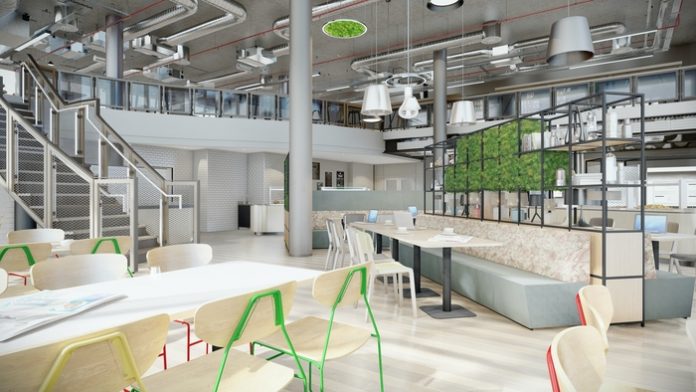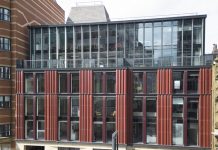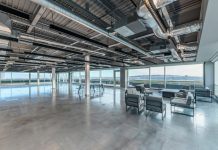Nationwide interior design and fit-out business Claremont has transferred its ownership into the hands of employees as the limited company changes to an Employee Ownership Trust (EOT).
The move comes as Claremont delivers some of its most ambitious office interior design projects and is on track to achieve £34.5m turnover for this financial year, up £10m on 2019/20.
Claremont has just secured the multi-million pound design and fit-out of Shoosmiths new London office which will start on site in 2021. Other recent projects include the £10m+ refurbishment and extension of Paddy Power Bet Fair’s Dublin office, the £1.2m design and build of Riverside House in Leeds for The Bailie Group and the £1.4m refurbishment of Eastlight House for Eastlight Community Homes in Essex throughout the pandemic.
Becoming an EOT now enables Claremont to not only focus on succession planning, but also reward the efforts and contribution of its team. Similar to the model used by The John Lewis Group, an EOT enables employees to buy the company from shareholders without using their own funds and keeps exiting directors in situ post-disposal for maximum stability.
Under the new structure, 50.1% of the company’s shares will be held in an Employee Ownership Trust, which provides the flexibility to reward staff with more than a year’s service. The remaining 49.9% sits with the board, which will now include Claremont’s most recently appointed directors Matt Riley, Richard Brook, Patrick Ames and Natalie Davies. Claremont has also appointed a separate governance board to ensure the EOT acts in employees’ best interests.
Tim Frankland, Managing Director of Claremont said: “Throughout our 40+ year history, we’ve always been a people orientated business so becoming an Employee Ownership Trust now is the perfect way to embody our values and recognise the contribution of our talented team.
“The decision was also borne out of considering how to protect the stability and longevity of the business as some directors plan their exits – without the need for an MBO or the possibility of being acquired by a bigger player. This way, Claremont remains in the hands of the people that have helped make it what it is today.”
He concluded: “Despite many UK offices remaining empty throughout 2020, there is still plenty of activity in the design and build market as our order book shows, as well as heightened demand for workplace consultancy in order to make sense of changing behaviours following Covid-19. Looking ahead, our focus is to keep creating future flexible and destination workspaces that provide compelling reasons to get back to the office.”
Claremont has been delivering office interior design and fit-out projects from its Warrington and Bristol offices for more than 40 years and is the first of its industry peers to assume this model of ownership.






















